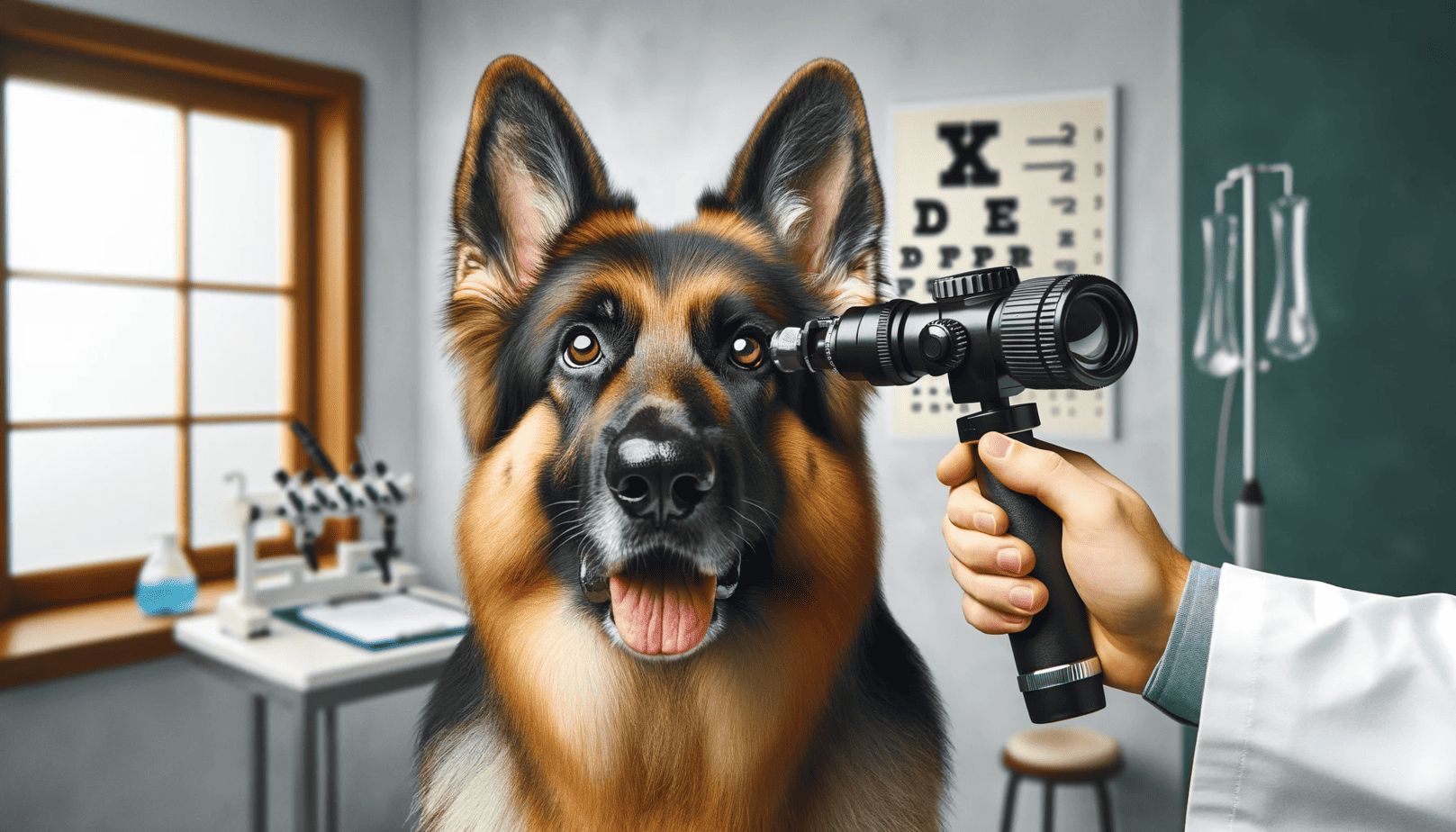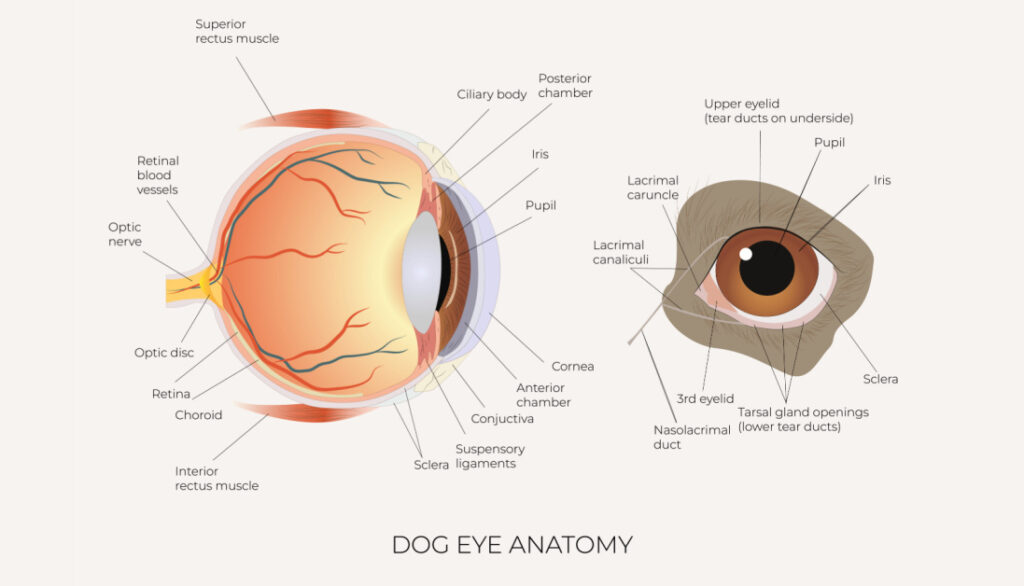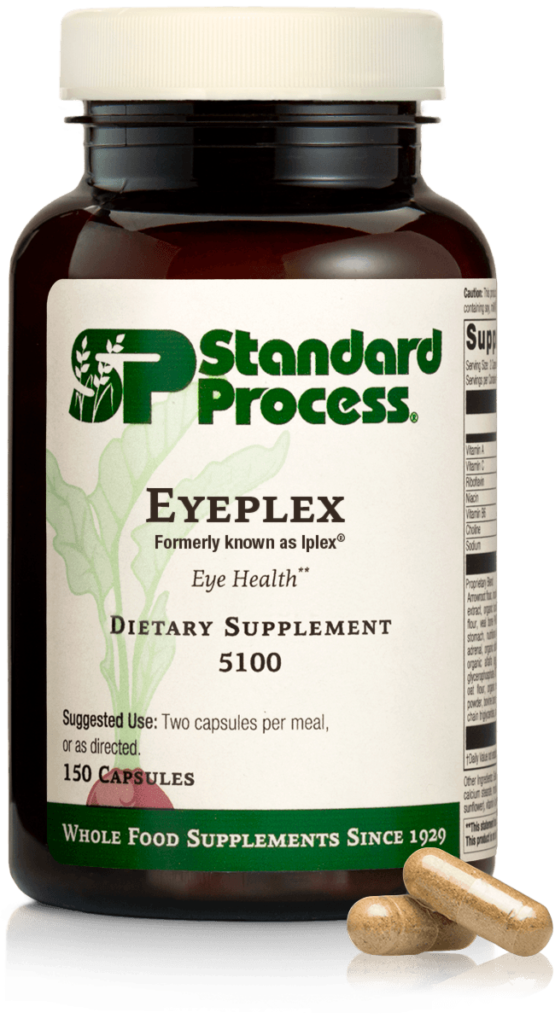As a holistic veterinarian, I understand how much you love your German Shepherd. These loyal and intelligent dogs aren’t just pets; they’re family. That’s why you’re here, searching for information about German Shepherd Eye Health – Conditions & Solutions From Vet. I’m here to guide you through this journey, providing you with the knowledge and tools you need to ensure your furry friend’s eyes stay as bright and healthy as possible.

German Shepherds, like all breeds, can be prone to certain eye conditions. Some of these can be quite serious, impacting not only their vision but also their overall quality of life. But don’t worry, together we can navigate these challenges. I’ll share with you the most common eye conditions in German Shepherds, as well as practical and effective solutions to prevent and treat these issues.
My approach is holistic, focusing on diet, environment, and routine eye care. I’ll introduce you to the benefits of a whole-food-based diet rich in natural Vit A and antioxidants, and the importance of maintaining a clean, safe environment. Plus, I’ll provide you with some straightforward German Shepherd eye care tips that you can easily incorporate into your daily routine.
So, let’s get started. Together, we’ll ensure your German Shepherd’s eyes remain healthy and bright, so they can continue to see the world in all its glory.
Understanding German Shepherd Eye Structure
A German Shepherd’s eye is composed of several parts, each playing a crucial role in vision. Starting from the outside, the cornea, a clear, protective layer, covers the front of the eye. Behind the cornea, the pupil and iris work together to control the amount of light entering the eye. The lens, located behind the pupil, focuses this light onto the retina, a layer of cells at the back of the eye, which converts light into electrical signals. These signals are then sent to the brain via the optic nerve, resulting in vision.
One unique feature of German Shepherds’ eyes is their almond shape, which is more pronounced than in other breeds. This distinctive shape, combined with a slight slant, gives German Shepherds their characteristic intelligent and alert expression. However, this unique shape can also make them more prone to certain eye conditions, which we will explore later in this article.
Understanding the structure of your German Shepherd’s eyes is not just an interesting fact, but it is also essential to identify early signs of eye problems. Issues can range from simple irritations to more serious conditions that could lead to vision loss if not addressed promptly. By knowing what’s normal for your German Shepherd’s eyes, you can spot any unusual changes quickly and seek veterinary advice.
Remember, as a German Shepherd parent, you play a key role in maintaining your pet’s eye health. Regular checks, balanced nutrition, and a clean environment can go a long way in preventing eye health issues. But, when problems do arise, understanding your dog’s eye structure can help you communicate more effectively with your vet and understand the treatment options available.

Common Eye Issues In German Shepherd
As a veterinarian, I often come across various eye health conditions in German Shepherds. Understanding these conditions can help you ensure the best care for your furry friend. Today, let’s delve into some common eye issues that affect this breed.
1. Progressive Retinal Atrophy (PRA): This is a genetic condition that gradually leads to blindness. It starts with night blindness and over time, the dog loses sight even during the day. Unfortunately, there’s no cure for PRA, but with early detection, we can manage the condition and maintain the quality of life for your German Shepherd.
2. Cataracts: Cataracts are also common in German Shepherds. They cause clouding of the lens, leading to decreased vision. The good news is, cataracts can be treated surgically, restoring your dog’s sight.
3. Corneal Dystrophy: This condition involves the cornea, the clear front surface of the eye. It causes white or grey opaque areas in the cornea, affecting vision. Treatment options may vary depending on the severity of the condition.
4. Conjunctivitis (Pink Eye): This inflammation of the eye’s outermost layer can cause redness, itching, and discharge. It’s usually caused by allergies or infections and can be treated with medication.
5. Keratoconjunctivitis Sicca (Dry Eye): Dry eye is a condition where the eyes don’t produce enough tears, leading to dryness and irritation. It can be managed with tear substitutes and medications that stimulate tear production.
6. Pannus (Chronic Superficial Keratitis): This is an immune-mediated condition where the cornea becomes inflamed, leading to pigmentation, blood vessel growth, and potential vision loss. Regular veterinary care and medication can help manage this condition.
Knowing about these common German Shepherd Eye Health – Conditions & Solutions From Vet can help you recognize early signs and get timely treatment. Remember, regular vet check-ups are crucial for early detection and management of these conditions.
Next, we’ll explore how to prevent these problems with a holistic diet and other measures. Stay tuned!

Nourishing Your Dog’s Vision: Essential Nutrients for Eye Health
Ensuring your German Shepherd gets the right nutrients for optimal eye health is essential for maintaining clear vision and preventing age-related issues. Natural, nutrient-rich foods and supplements can play a key role in supporting their eyesight. From vitamin A-packed freeze-dried liver treats to antioxidant-rich blueberries and targeted supplements like Eyeplex by Standard Process, there are several ways to nourish your dog’s eyes. In this section, we’ll explore how these powerful ingredients contribute to long-term vision health and overall well-being.
Eyeplex by Standard Process
Eyeplex by Standard Process is a specialized supplement designed to support your German Shepherd’s eye health with a blend of essential nutrients. Formulated with key vitamins, minerals, and antioxidants, Eyeplex helps protect against oxidative stress, supports retinal function, and promotes overall vision health. Ingredients like vitamin A, vitamin C, and zinc contribute to maintaining strong eyesight, while whole food ingredients provide additional phytonutrients for cellular protection. Adding Eyeplex to your German Shepherd’s diet can be especially beneficial for aging dogs or breeds prone to eye conditions, offering targeted nutritional support to keep their vision sharp and healthy for years to come.

Freeze-Dried Blueberries
Freeze-dried blueberries are a powerhouse of antioxidants that can help protect your German Shepherd’s eyes from oxidative stress and age-related damage. Rich in vitamins C and E, as well as anthocyanins, these tiny but mighty berries help combat free radicals that can contribute to eye diseases like cataracts and macular degeneration. Incorporating freeze-dried blueberries into your dog’s diet provides a natural and delicious way to support retinal health, reduce inflammation, and promote overall vision longevity. Plus, they’re a low-calorie, dog-friendly treat that makes a great addition to a balanced diet for long-term eye health.

Freeze-Dried Liver
Freeze-dried liver treats are an excellent natural source of vitamin A, an essential nutrient for your German Shepherd’s eye health. Vitamin A plays a crucial role in maintaining good vision, especially in low-light conditions, while also supporting overall immune function and skin health. Since liver is rich in bioavailable vitamin A, incorporating freeze-dried liver treats into your dog’s diet provides a convenient and nutritious way to promote optimal eye function. Just be sure to feed them in moderation, as excessive vitamin A can lead to toxicity. Adding these nutrient-packed treats to your pup’s routine is a simple, tasty way to support their long-term vision and well-being!

By prioritizing your German Shepherd’s eye health through a balanced diet and nutritional supplements, you can help prevent many common eye issues. These simple steps can go a long way in ensuring your pup’s eyes stay healthy and clear for years to come.
Environmental Hygiene To Reduce Eye Problems
One of the most overlooked aspects of German Shepherd eye health is environmental hygiene. Your home environment plays a pivotal role in preventing eye issues and ensuring your furry friend’s overall wellness. Here are some ways to maintain a clean and safe environment for your German Shepherd’s eyes.
Indoor Air Quality
Indoor air quality can significantly impact your German Shepherd’s eye health. Dust, dander, and other airborne irritants can cause eye irritation, leading to conditions like conjunctivitis. Regularly cleaning your home, particularly the areas where your German Shepherd spends most of its time, can help reduce these irritants. Using air purifiers or humidifiers can also help maintain good indoor air quality, especially during seasons when allergens are high.
Moreover, avoid smoking indoors as secondhand smoke can cause severe eye irritation in dogs. Ensure good ventilation in your home to keep the air fresh and clean.
Sprays, Diffusers, Candles, Incense
Scented products such as sprays, diffusers, candles, and incense can also irritate your German Shepherd’s eyes. Dogs have a more sensitive sense of smell compared to humans, and strong fragrances can cause them discomfort. Furthermore, these products often contain chemicals that can cause eye irritation or allergies.
Try to limit the use of these products or opt for natural alternatives. If you must use these products, make sure they are out of your dog’s reach and the area is well-ventilated.
Remember, maintaining a clean and safe environment is a crucial part of German Shepherd eye care. Regularly check your home for potential hazards and keep your dog’s living area clean and free from irritants. By taking these simple steps, you can help prevent common eye conditions and ensure your German Shepherd’s eyes stay healthy and clear.
After all, as a responsible pet parent, nothing is more rewarding than seeing your German Shepherd’s eyes sparkle with health and happiness!
Routine Eye Care & Maintenance
Just like humans, our canine friends also need regular eye care to maintain good eye health, and this is particularly true for German Shepherds. Here are some tips on routine eye care and maintenance for your German Shepherd to ensure their eyes remain healthy.
Daily & Weekly Care & Maintenance
Conducting daily and weekly checks on your German Shepherd’s eyes can significantly aid in maintaining their eye health. Here’s how to go about it:
- Examine their eyes daily: Look out for signs of redness, discharge, or any changes in appearance. If you notice anything unusual, consult your vet immediately.
- Clean their eyes: Use a soft, damp cloth to gently wipe around their eyes. Be careful not to touch the eye itself. Always use a fresh area of the cloth for each eye to prevent the spread of any potential infection.
- Keep their eyes moist: If your German Shepherd’s eyes seem dry, use dog-safe eye drops to keep them moist. Always consult your vet before using any new products.
Monitor Hair Length, Nail Length, Bath Frequency
Maintaining your German Shepherd’s overall hygiene can also play a significant part in their eye health. Here’s what you can do:
- Trim their hair: Long hair can irritate your German Shepherd’s eyes and potentially lead to infections. Regularly trim the hair around their eyes to keep their vision clear and prevent any irritations.
- Trim their nails: Long nails can inadvertently scratch and injure the eyes, especially if your German Shepherd has a habit of pawing at their face. Regular nail trims can reduce this risk.
- Regular baths: Bathing your German Shepherd regularly can help to keep their coat clean and reduce the risk of eye infections. However, be careful not to get shampoo or water in their eyes as it can cause irritation.
Remember, the key to maintaining your German Shepherd’s eye health is regular care and early detection of any potential issues. By following these tips, you can help to ensure that your German Shepherd’s eyes remain healthy and bright. As always, consult with your vet for any concerns or questions you may have regarding your German Shepherd’s eye health.
Frequently Asked Questions
1. What are common eye conditions in German Shepherds?
German Shepherds are prone to various eye conditions such as cataracts, progressive retinal atrophy (PRA), cherry eye, and entropion.
2. How can I prevent eye problems in my German Shepherd?
To prevent eye problems, it is important to maintain regular veterinary check-ups, keep the eyes clean, avoid exposure to irritants, provide a balanced diet rich in essential nutrients, and protect the eyes from trauma or injury.
3. What are the symptoms of eye issues in German Shepherds?
Common symptoms of eye problems in German Shepherds include redness, excessive tearing, discharge, cloudiness, squinting, rubbing or pawing at the eyes, sensitivity to light, and changes in vision.
4. Can eye conditions in German Shepherds be treated?
Yes, many eye conditions in German Shepherds can be treated. The treatment options depend on the specific condition and may include medications, surgery, or other interventions recommended by a veterinarian.
5. When should I seek veterinary care for my German Shepherd’s eye issues?
If you notice any signs of eye problems or changes in your German Shepherd’s eyes, it is important to seek veterinary care promptly. Early detection and treatment can help prevent further complications and ensure the best possible outcome for your dog’s eye health.
